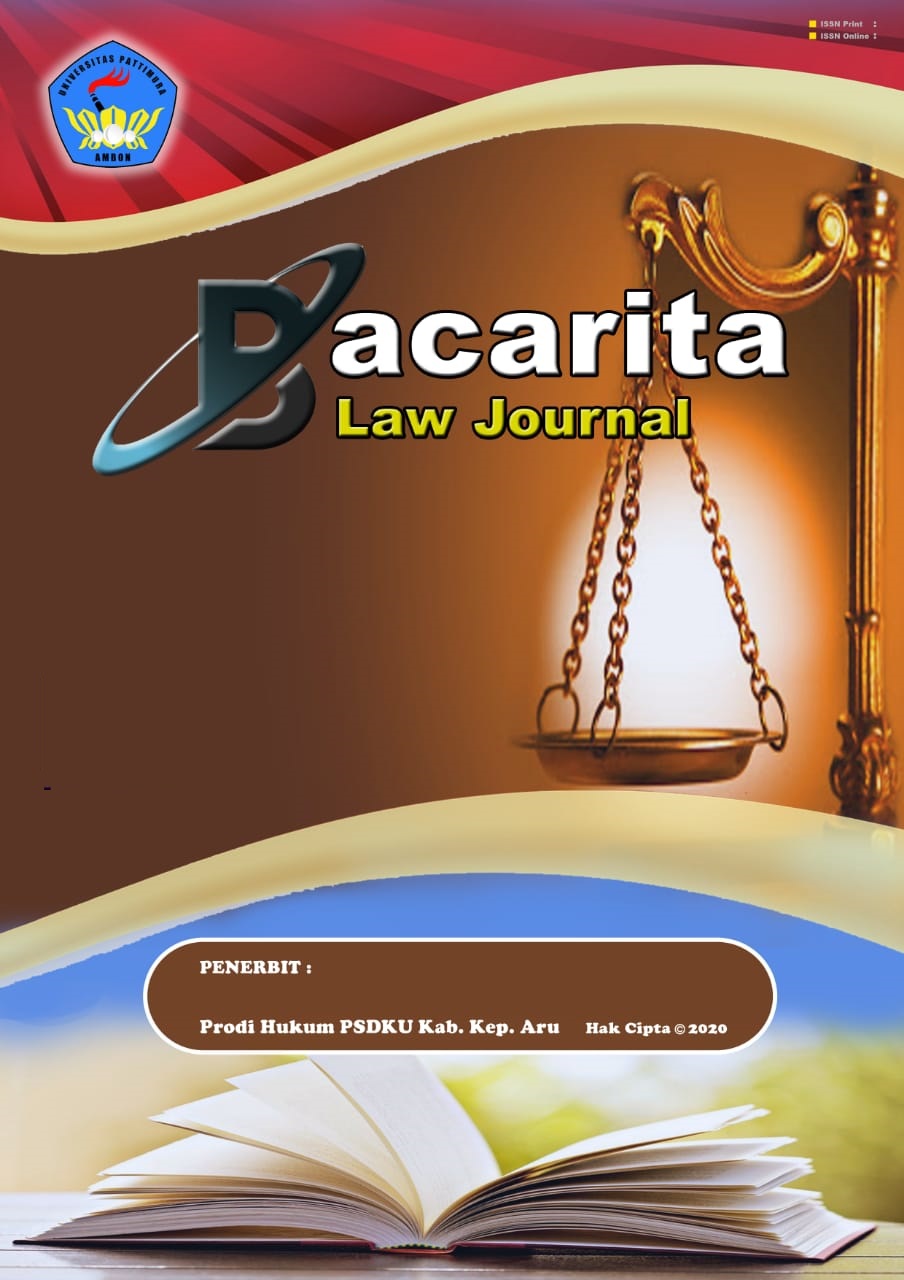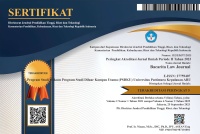The Role of The Correctional Center Class II Merauke in Handling Children in Conflict with The Law
Abstract
Handling Children in Conflict with the Law (ABH) cannot be done like adults. Through its role, the Correctional Center (BAPAS) plays an essential role in the judicial process of ABH, following applicable laws and regulations. This paper will present the implementation of the role of Bapas in understanding, appreciating, and carrying out all the mandates contained in the SPPA Law because, with the SPPA Law, there are many changes in the system, mechanisms, and procedures for Bapas in carrying out their duties and functions in handling ABH. The purpose of this study was to determine the role of Bapas class II Merauke in the settlement of criminal cases by children and the obstacles faced by Bapas class II Merauke in the settlement of criminal cases by children. The method used in this study is a juridical-empirical research method whose writing nature is descriptive with a qualitative approach to observe behavior, actions, social environment, and other aspects related to the implementation of the role of Bapas Class II Merauke at each stage in the judicial process undertaken by ABH, namely at the stage in the judicial process conducted by ABH, namely at the pre-court stage (post-adjudication, court stage (adjudication), and post-court stage (post-adjudication). The results showed that Bapas has obstacles in resolving criminal cases by children, among others: Large working area, lack of coordination among law enforcement officers, lack of quantity of human resources in Correctional Center Class II Merauke, lack of adequate facilities and infrastructure, families of juvenile clients who are not cooperative with Bapas officers, absence of LPKA and LPAS budget allocation and very minimal funds. Nevertheless, the function of Bapas in handling ABH can be carried out according to the stages set. Following the legislation, Bapas Class II Merauke can function as an institution that handles ABH differently from how adults are handled.
Downloads
References
Book
Beliyana, Shanti. Wanita Dan Anak Di Mao Hukum. Jakarta: Liberty, 1995.
Marlina. Peradilan Pidana Anak Di Indonesia Pengembangan Konsep Diversi Dan Restorative Justice. Refika Aditama:Bandung, 2009.
Shanty, Beliyana. Wanita Dan Anak Di Mata Hukum. Jakarta: Liberty, 1995.
Soerjono, Soekanto. Pengantar Penelitian Hukum. Jakarta: Ul Press, 1984.
Thesis, Online/World Wide Web and Others
Humaidi, Usai. Peran Pembimbing Kemasyarakatan Dalam Proses Penyelesaian Perkara Anak. Mataram: Fakultas Hukum Matarim, 2012.
Copyright (c) 2024 Gusti Ayu Utami, Andi Ervin Novara Jaya

This work is licensed under a Creative Commons Attribution-NonCommercial 4.0 International License.
Authors who publish their manuscripts in this Journal agree to the following conditions:
- The copyright in each article belongs to the author, as well as the right to patent.
- Authors are able to enter into separate, additional contractual arrangements for the non-exclusive distribution of the journal's published version of the work (e.g., post it to an institutional repository or publish it in a book), with an acknowledgment of its initial publication in this journal.
- Authors are permitted and encouraged to post their work online (e.g., in institutional repositories or on their website) prior to and during the submission process, as it can lead to productive exchanges, as well as earlier and greater citation of published work.
- Authors have the right to self-archiving of the article (Author Self-Archiving Policy)















